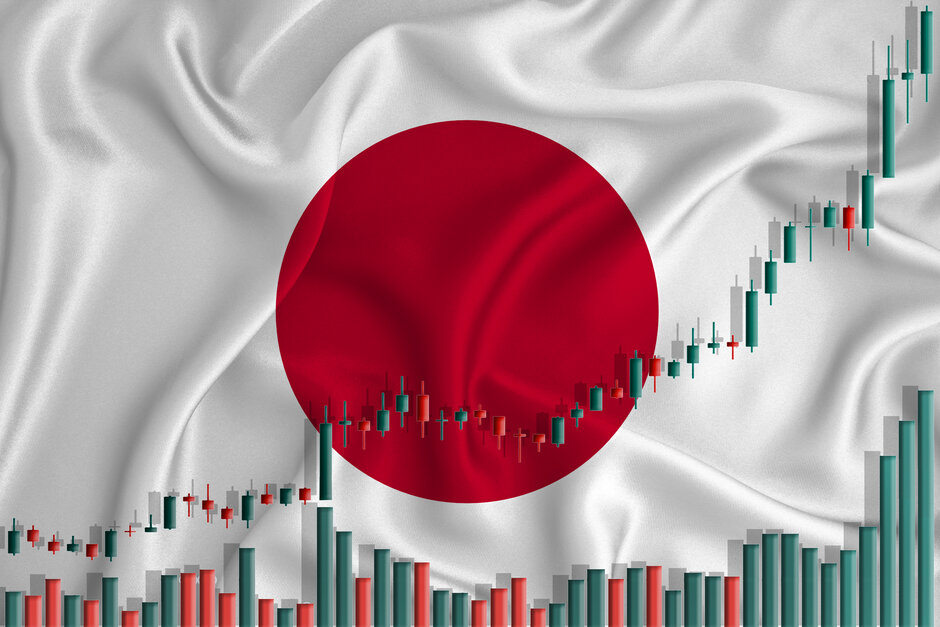Japan Stock Index: A Comprehensive Guide for First-Time Investors

Japan Stock Index: A Comprehensive Guide for First-Time Investors-Investing in stock markets can be an exciting yet daunting task, especially for first-time investors. One of the most intriguing markets to consider is Japan, a country known for its technological advancements, strong economy, and influential companies. If you’re looking to explore the Japan Stock Index, this guide will provide you with the essential information to get started.
What is the Japan Stock Index?
The Japan Stock Index (JSI) refers to a collection of indices that track the performance of Japan’s stock market. It includes several key indices such as the Nikkei 225, the Topix, and the JPX-Nikkei Index 400. These indices represent the performance of the largest and most prominent companies in Japan, providing investors with an overall view of the country’s economic health.
The most widely recognized index is the Nikkei 225, which includes 225 of the largest companies listed on the Tokyo Stock Exchange (TSE). Investors use these indices to gauge market trends, monitor performance, and make informed decisions.
Why Invest in the Japan Stock Index?

There are several reasons why you might consider investing in the Japan Stock Index as a first-time investor. Let’s take a closer look:
1. Diverse and Robust Economy
Japan is the third-largest economy in the world by nominal GDP, behind only the United States and China. With its diverse sectors, from technology and automotive to manufacturing and consumer goods, Japan offers a wide range of investment opportunities. Companies like Toyota, Sony, and SoftBank are not only market leaders in Japan but also have a significant global presence, making the country a powerful player in the global stock market.
2. Stability and Low Volatility
Compared to some emerging markets, Japan’s stock market is known for its relative stability and low volatility. While no market is completely risk-free, Japan has a well-established financial system and a history of resilient economic growth. This makes it an attractive option for long-term investors seeking a stable market. (Read More: Business Formal Dress Codes for Women: What’s Acceptable in 2024?)
3. Attractive Dividend Yields
Many companies listed on the Japan Stock Index offer attractive dividend yields. Japan has a culture of strong corporate governance, with many companies prioritizing shareholder returns through dividends and share buybacks. This can be especially appealing for income-focused investors looking to diversify their portfolio.
How to Invest in the Japan Stock Index?

If you’re ready to invest in the Japan Stock Index, there are several ways you can gain exposure to the market:
1. Exchange-Traded Funds (ETFs)
One of the easiest and most popular ways to invest in the Japan Stock Index is through Exchange-Traded Funds (ETFs). ETFs track the performance of a specific index, and there are several that focus on Japan’s stock market. Some well-known Japan-focused ETFs include the iShares MSCI Japan ETF and the Nikkei 225 ETF. These funds allow you to invest in a broad range of Japanese companies without having to pick individual stocks.
2. Mutual Funds
Another option is investing in mutual funds that focus on Japanese stocks. These funds pool money from multiple investors to invest in a diversified portfolio of stocks. Mutual funds are managed by professional portfolio managers, which can be beneficial for new investors who may not have the expertise to pick stocks on their own.
3. Direct Stock Investments
For more experienced investors, buying individual stocks listed on the Tokyo Stock Exchange is another option. While this can offer greater control and potential for high returns, it requires more research and a deeper understanding of the companies in which you invest. Be prepared to closely follow market trends, company reports, and economic factors that may affect the performance of your investments. (Read More: How to Land High-Paying Business Administration Jobs in Today’s Market)
Key Japan Stock Indices to Know
As a first-time investor, it’s important to understand the key indices within the Japan Stock Index. These indices offer a snapshot of the market’s performance and can help you determine where to focus your investments.
1. Nikkei 225
The Nikkei 225 is the most well-known stock index in Japan. It tracks the performance of 225 major companies, including giants like Toyota, Honda, and Mitsubishi. The index is a price-weighted average, which means that companies with higher stock prices have more influence on the index’s movement.
2. Topix (Tokyo Price Index)
The Topix index represents all the companies listed on the Tokyo Stock Exchange’s First Section. Unlike the Nikkei 225, the Topix is a capitalization-weighted index, which means that larger companies (in terms of market capitalization) have a bigger impact on the index’s movement. The Topix offers a broader view of Japan’s stock market and is considered a more comprehensive gauge of the market’s overall performance. (Read More: 10 Strategies for Improved Productivity Business Flow: Elevating Efficiency for Success)
3. JPX-Nikkei Index 400
The JPX-Nikkei Index 400 is a newer index that tracks 400 high-quality companies based on factors like profitability, return on equity, and corporate governance. The focus on quality makes this index appealing to long-term investors who want to invest in companies with strong fundamentals.
Risks and Considerations

While the Japan Stock Index offers many opportunities, it’s important to be aware of the risks involved in investing in the stock market. Some factors to consider include:
- Currency risk: If you’re investing in Japanese stocks from another country, fluctuations in the Japanese yen (JPY) can affect your returns. Currency exchange rates can be unpredictable, and the value of the yen could either benefit or hurt your investment.
- Economic cycles: Japan’s economy, like any other, experiences ups and downs. While Japan is known for its stability, recessions or economic slowdowns can impact stock prices and overall market performance.
- Market liquidity: While the Japanese stock market is liquid, some smaller stocks may have lower trading volumes, making them harder to buy or sell at favorable prices.
Conclusion article Japan Stock Index: A Comprehensive Guide for First-Time Investors
Investing in the Japan Stock Index can be an excellent opportunity for first-time investors who are looking to diversify their portfolios and explore one of the world’s most influential stock markets. By understanding the key indices, investment options, and risks involved, you can make informed decisions that align with your financial goals. Whether through ETFs, mutual funds, or direct stock investments, the Japan Stock Index offers a variety of ways to tap into Japan’s robust economy. Happy investing!





